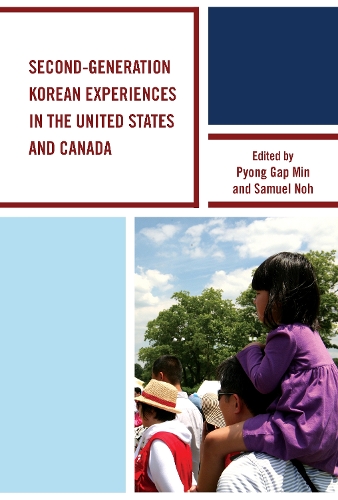
Second-Generation Korean Experiences in the United States and Canada
(Hardback)
Publishing Details
Second-Generation Korean Experiences in the United States and Canada
By (Author) Pyong Gap Min
Edited by Samuel Noh
Foreword by Yung Duk Kim
Contributions by Neha Ahmed
Contributions by Angie Y. Chung
Contributions by Miliann Kang
Contributions by Trivina Kang
Contributions by ChangHwan Kim
Contributions by Chigon Kim
Contributions by Dae Young Kim
Bloomsbury Publishing PLC
Lexington Books
29th October 2014
United States
Classifications
Professional and Scholarly
Non Fiction
Migration, immigration and emigration
Social groups, communities and identities
305.895073
Physical Properties
Hardback
268
Width 163mm, Height 232mm, Spine 29mm
513g
Description
In Second-Generation Korean Experiences in the United States and Canada, Pyong Gap Min and Samuel Noh have compiled a comprehensive examination of 1.5- and second-generation Korean experiences in the United States and Canada. As the chapters demonstrate, comparing younger-generation Koreans with first-generation immigrants highlights generational changes in many areas of life. The contributors discuss socioeconomic attainments, self-employment rates and business patterns, marital patterns, participation in electoral politics, ethnic insularity among Korean Protestants, the relationship between perceived discrimination and mental health, the role of ethnic identity as stress moderator, and responses to racial marginalization. Using both quantitative and qualitative data sources, this collection is unique in its examination of several different aspects of second-generation Korean experiences in the United States and Canada. An indispensable source for those scholars and students researching Korean Americans or Korean Canadians, the volume provides insight for students and scholars of minorities, migration, ethnicity and race, and identity formation.
Reviews
Bringing scholarship on the Korean-American and Korean-Canadian new second generation up to the level of that documenting other ethnic and nationality groups, Pyong Gap Min and Samuel Nohs Second-Generation Korean Experiences in the United States and Canada is a groundbreaking volume. Its 13 chapters by leading scholars from multiple disciplines and perspectives examine numerous aspects of this groups intergenerational adaptation including economic achievement, employment patterns, experience of racial discrimination, psychological well-being, co-ethnic involvement, voting behavior, religious participation and a host of other fascinating topics. In total, the book provides unprecedented insight into the experience of Koreans in North America. Required reading for scholars in social science, ethnic studies and international migration. -- Steven J. Gold, professor of sociology, Michigan State University
Author Bio
Pyong Gap Min is Distinguished Professor of Sociology at Queens College and the Graduate Center of the City University of New York and director of the Research Center for Korean Community at Queens College. Samuel Noh is professor of psychiatry at the University of Toronto, Research Scientist Emeritus at the Centre for Addiction and Mental Health, and co-director of the Social Aetiology of Mental Illness (SAMI).
